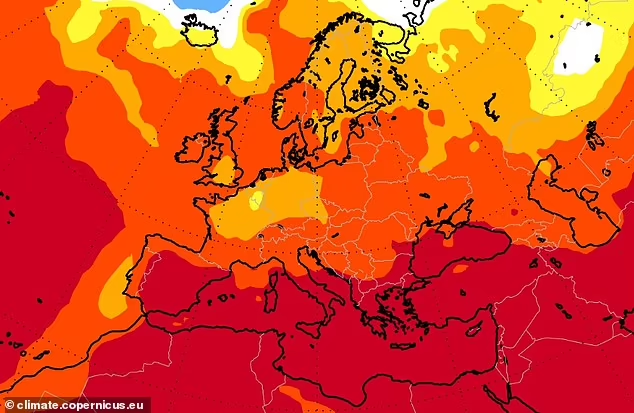Two additional fatalities have been reported in Greece, marking a tragic continuation of incidents amidst unprecedented high temperatures sweeping across southern Europe.

A Dutch visitor was discovered deceased in a ravine on the island of Samos early Saturday morning, located approximately 300 meters from his last known position. Reports indicate the 74-year-old had encountered difficulties walking in the intense heat before succumbing to his condition.
Shortly after, a 55-year-old American was found deceased on a remote beach on Mathraki Island, following a search initiated after his disappearance was reported earlier.
These deaths follow a distressing pattern of recent incidents in Cyprus, where soaring temperatures exceeding 43°C have claimed the lives of two elderly individuals. This surge in fatalities also includes the tragic loss of Michael Mosely, a well-known British personality, who went missing while hiking on Symi island.
Meteorological and Climate Impact
The Copernicus Climate Change Service (C3S) has issued seasonal forecasts projecting continued extreme heat throughout July, August, and September. The Mediterranean region is particularly susceptible to temperatures surpassing historical norms, with probabilities of temperatures exceeding the 80th percentile significantly elevated.
Forecasters warn of ongoing heatwave conditions across Greece and Turkey, prompting health advisories and precautionary measures for residents and travelers alike.
Health Concerns and Emergency Responses
Health officials in affected areas report multiple cases of heatstroke and related illnesses among elderly populations. Hospitals are managing an influx of patients exhibiting severe symptoms exacerbated by temperatures reaching alarming highs, such as 45°C in Cyprus.
Emergency measures have been implemented, including red alerts and restrictions on outdoor activities during peak temperatures. These efforts aim to mitigate health risks and prevent further casualties from heat-related incidents.
Environmental Impact and Wildfires
In addition to health risks, the extreme weather conditions have fueled wildfires across Greece. Recent efforts involved coordinated firefighting operations with international assistance, reflecting the severity and scale of the environmental challenges posed by the ongoing heatwave.
Cultural and Economic Disruptions
The adverse weather conditions have disrupted daily life and tourism activities in affected regions. Iconic sites like the Acropolis in Athens have been temporarily closed to safeguard visitors from heat exposure, underscoring the unprecedented nature of the current climate events.
Conclusion
As temperatures continue to soar above seasonal averages, the implications for public health, safety, and environmental stability remain profound. Authorities and communities are urged to remain vigilant and prepared for potential escalations in heat-related incidents, underscoring the urgent need for sustainable climate adaptation measures.








